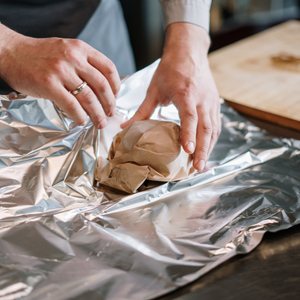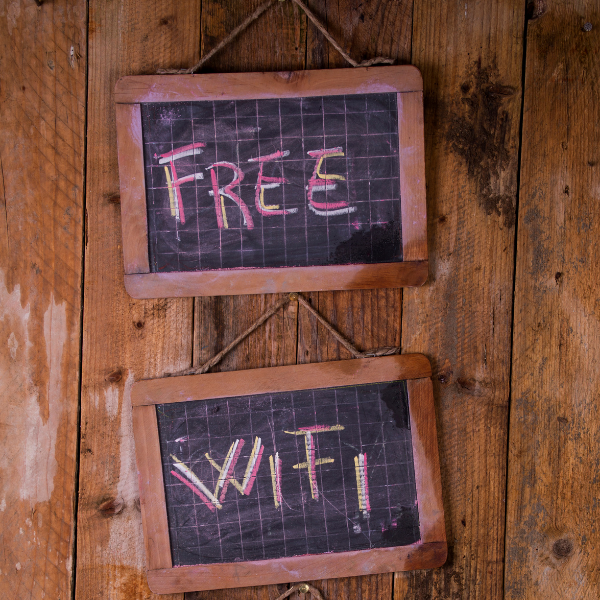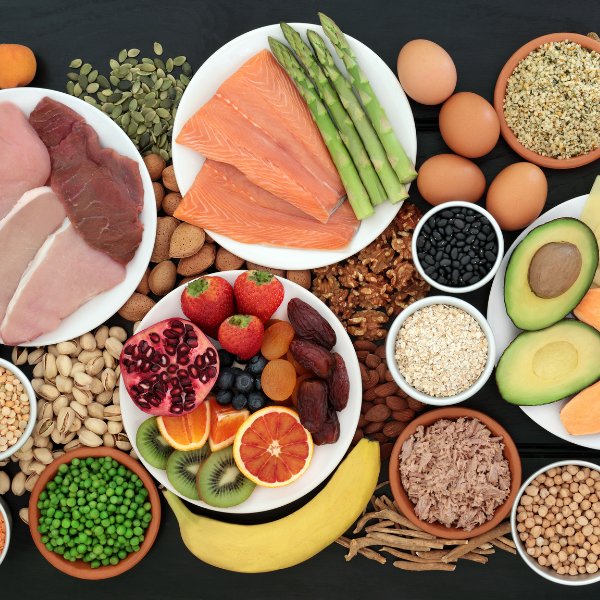With the scientific evidence of per- and polyfluoroalkyl substances (PFAS chemicals) in many foodserive supplies, it's vital for establishments to prep or serve food using restaurant supplies or products with no PFAS added. These chemicals do not break down in the human body or environment, impacting human health and the planet.
To help operators ensure they are using foodservice packaging or smallwares with no PFAS added, we have created this detailed buying guide. Learn about the different products in your establishment that may contain chemicals and how to find restaurant supplies with no PFAS added.
Laws & Regulations Regarding PFAS Products
Certain states have created regulations to protect the public from potentially harmful substances in many everyday products. State regulations prohibit a person or business from distributing, selling, or offering packaging containing PFAS that are intentionally added or present past certain levels. Below are states with regulations for PFAS.
New York
New York enacted the Hazardous Packaging Act, Title II of Article 37 of the Environmental Conservation Law, which bans food packaging containing PFAS. This law comes into effect on Dec. 31, 2022, and affects all products originally derived from plant fibers and intended for direct contact with food, such as bags, boxes, wrappers, trays, and cups. Moving forward, operators and manufacturers need to determine if the packaging items they are distributing or using meet the PFAs restrictions in the law.
California
Under the Safer Consumer Products (SCP) regulations in California, the Assembly Bill (AB) 1200 was introduced into law. The AB bans all plant-based food packaging with PFAS intentionally added or at levels exceeding 100 parts per million fluorine. The bill goes into effect on Jan. 1, 2023, eliminating the need for this product-chemical combination to be listed as a Priority Product.
Washington
Starting February 1, 2023, in Washington’s Toxics in Products Laws, Chapter 70A.222, manufacturers, distributors, and retailers involved in producing, selling, or distributing wraps, plates, food boats, or pizza boxes are prohibited from intentionally adding PFAS chemicals. Beginning May 1, 2024, there is a restriction on the use of certain chemicals in food packaging. Specifically, food packaging manufacturers, distributors, and retailers are prohibited from intentionally adding PFAS to bags, sleeves, bowls, flat serviceware, open-top containers, or closed containers.
Vermont
Taking into effect on July 1, 2023, Vermont Bill S.20 prohibits the sale, offer for sale, or distribution of food packaging in the state that has PFAS present in any amount. The act defines a food package as a package or packaging component that is intended for direct food contact.
How To Find Products With No PFAS Added
Making a switch to products with no PFAS added at your establishment can be stressful when not given proper details on how or what materials to steer away from. Only purchase food packaging products from retailers that have pledged to eliminate toxic chemicals from their product lines. By doing so, your establishment can ensure patrons that the food packaging and dishes they will receive when dining to-go is safe to take and consume.
Thankfully, there are alternatives to products with PFAS added you can switch to if you desire to continue using packaging materials such as paper and other plant based-fibers. There are also materials and products that naturally do not contain PFAS or are not regulated by the PFAS legislation.
Materials That Have No PFAS Added
You don’t have to say goodbye to paper or stylish packaging. Alternatives to the foodservice supplies you use every day exist and achieve the same performance level as product lines that contain these forever chemicals. Keep reading to discover which materials do not contain PFAS.
No PFAS Added Paper
No PFAS added paper is designed to not have these chemicals while still offering similar benefits to paper products with chemicals added to them. It is manufactured using processes that do not produce or use PFAS at any stage during production. This ensures a safer product for both humans and the environment.
No PFAS Added Bagasse
No PFAS added bagasse products allow restaurants to minimize their carbon footprint without harming customers. Manufactured specifically to avoid adding PFAS chemicals, they have detectable traces of these harmful substances. As a result, your establishment can use an eco-friendly and safe product.
PLA Plastic
Polylactic acid (PLA) is a compostable plastic made from plant-based materials. PLA products are an environmentally-friendly alternative to traditional plastics, as they do not contain harmful chemicals and break down into harmless compounds that are reused in the environment.
PE Plastic
Polyethylene (PE) plastic is popular in the food industry because it is a non-stick material that doesn't need to be coated with PFAS. PE plastic is also durable and can withstand high temperatures, making it an ideal material for food containers and wraps.
PET Plastic
Polyethylene terephthalate (PET) plastic is known as a strong, lightweight plastic that is shatter-resistant, making it an excellent choice for to-go containers.
Stainless Steel
Stainless steel restaurant supplies are typically not made with any chemicals that could potentially contaminate ingredients. Stainless steel is a durable and hygienic material that does not corrode or rust, making it a great material to produce foodservice products. Additionally, stainless steel is easy to clean and does not leach harmful chemicals into food.
Silicone
Silicone is a synthetic material that is often used in cookware, bakeware, and other products because it is heat-resistant and does not leach chemicals into food.
Glass
Glass is made from natural materials like sand and soda ash, which are melted together in a kiln and formed into bottles or jars. The high temperature and chemical reaction create a strong and sturdy glass that does not leach harmful chemicals like PFAS - making it ideal to use glassware to serve all types of meals and drinks.
Ceramic
Ceramic is a natural material that does not contain any harmful chemicals. It is durable and heat-resistant, making it an ideal choice for serving or reheating dishes.
Carbon Steel
Carbon steel has many benefits over other materials used for cookware. It is durable and corrosion-resistant, allowing it to withstand high exposure to heat and moisture.
Bio-Wax Coating
Bio-wax is made from plant-based materials (like soy and beeswax), making it environmentally friendly and biodegradable. Products coated with bio-wax such as bamboo tableware, work just as well as traditional waxes in creating a moisture barrier.
Aluminum
Aluminum is a metal that has been used in cookware and food packaging for many years because it is durable, non-toxic, and does not corrode.
Porcelain
Porcelain is a type of ceramic material that is made from a mixture of clay and other materials like silica and feldspar. It is constructed using high temperatures, making porcelain dishes durable, microwave-safe, and oven-safe.
What Are PFAS Used For?
Since the 1950s, PFAS have been used in paper and food packaging. The chemicals are often used as a coating to prevent paper from soaking up grease, oils, and water. Products coated with PFAS are typically used to heat dishes, store food for long periods, or hold saucy dishes.
Foodservice Supplies That May Have PFAS Added
Non-stick cookware can be more hazardous than we think. While non-stick pots and pans keep food from sticking and minimize the use of oils, many of them contain additional PFAS. Ingredients made in cookware containing added PFAS may cause your customers to consume harmful levels of PFAS. To keep your patrons safe, avoid cooking with non-stick products and use cookware with no PFAS added.
Packaging that is grease-resistant or water-resistant is often coated with PFAS. For example, most microwavable popcorn bags have PFAS to prevent butter or caramel from leaking through. When the bag is disposed of after use, the chemicals may make contact with water sources and soil, impacting the environment. To help prevent these chemicals from affecting the planet, serve, heat, or package orders using products that are coated with alternative compounds.
Before getting rid of all of your restaurant supplies, it's essential to know which products may potentially contain PFAS. Below is a list of foodservice products that may contain these harmful chemicals:
Cookware That May Contain PFAS
- Pots & Pans
- Baking paper
Foodservice Ware That May Contain PFAS
- Bowls & plates
- Take out containers (especially cardboard)
- Food trays & boats
- Bags (for sandwiches & baked goods)
- Straws
- Boxes (for pizzas & pastries)
- Wrappers & liners

How To Find Products With No PFAS Added
We understand that switching to products with no PFAS added at your foodservice establishment can be stressful. When purchasing restaurant supplies with no PFAS added, it's essential to consider each product. You want to look for items that are made from materials that do not contain PFAS and non-toxic labels. It's also important to research the company you're purchasing supplies from and ask if their product lines contain harmful chemicals.
Products That Likely Contain PFAS
There are a variety of features in foodservice ware, packaging, and cookware that you want to avoid when wanting to ban PFAS from your restaurant. Many of these features attract consumers because they make the product more reliable. However, it is vital to stick to materials that do not contain harmful chemicals to stop further contaminating the environment and risking the health of your customers. Below, you will find a list of materials PFAS lingers on:
How Does PFAS Affect Restaurantware Directly?
Recent state legislation has specifically targeted and will regulate food packaging made from plant fibers that contain PFAS. Since Restaurantware offers such a wide selection of plant fiber-based food packaging, some of our packaging products contain intentionally added PFAS chemicals while others do not. We are actively expanding our no-PFAS-added options and are committed to providing sustainable, plant fiber-based packaging options that comply with the PFAs regulations.
What Is Restaurantware Doing To Meet Regulations?
At Restaurantware, we take great pride in our commitment to the health of our customers and the planet. We've partnered with highly qualified labs and implemented a thorough oxygen bomb combustion method - one of the most accurate available for measuring organofluorine contamination as part of our mission towards controlling and remediating PFAS levels across all materials used by us. The goal is clear: adhere to strict regulations within state legislated guidelines without compromising nature or people's wellbeing.
The lab begins with a digest of each material through the oxygen bomb combustion with ion selective electrode for fluorine testing to determine an accurate level of PFAS and organofluorine contamination. This testing method offers a complete breakdown of the sample material for detecting even the smallest traces of PFAS. The testing method we have chosen ensures that all types of PFAS are identified to guarantee that all our future products are safe to use and do not present PFAS at levels not permitted by state regulations.
To further meet the standard of strict state regulations, Restaurantware will be coming out with a new product line: Pulp Safe. Our Pulp Safe collection is made from paper and bagasse materials with no PFAS added, so consumers living in states where PFAS chemicals are banned can purchase these products without worry.
Make The Switch
The dangers of PFAS have been known for a while, but the damage they can do is only now becoming clear. Studies link these chemicals to cancer, hormone disruption, and other serious health problems. Many companies have already started phasing out products with no PFAS added and replacing them with safer alternatives. With this buying guide, you can help remove these forever chemicals away from your kitchen and customers' orders.








